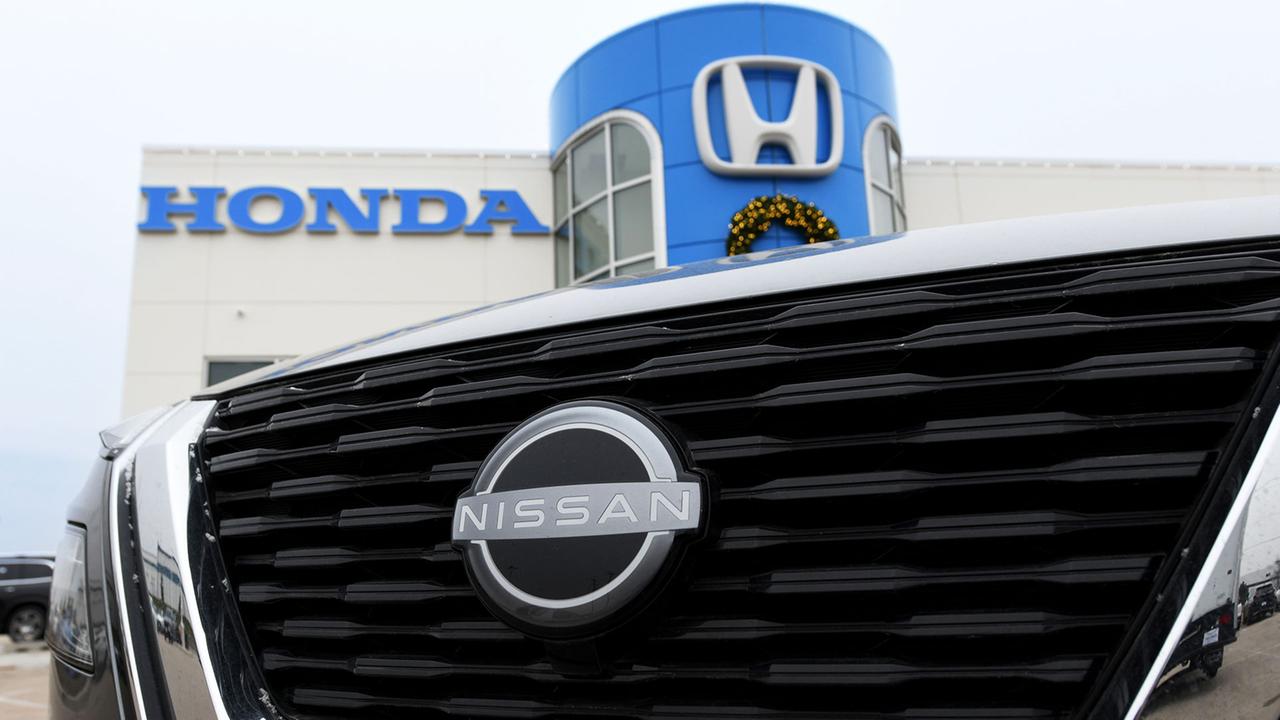The Japanese manufacturers Honda and Nissan have been negotiating a merger for some time – now the talks are official. The third largest car company in the world could be created, in which Mitsubishi also has a stake.
Honda and Nissan have confirmed talks about a merger and want to involve Mitsubishi Motors in it. At a press conference in Tokyo today, the three Japanese car companies announced an agreement to begin talks.
Honda and Nissan, Japan's second and third largest carmakers, want to complete negotiations by June 2025. To this end, they are considering setting up a holding company in August 2026, which could then go public. Nissan's partner Mitsubishi Motors wants to decide by the end of January whether the group will participate in a merger, the companies said. Nissan has been Mitsubishi's largest shareholder since 2016.
“Honda and Nissan have begun to consider business integration and will explore creating significant synergies between the two companies in a variety of areas,” said Nissan CEO Makoto Uchida. “The rise of Chinese automakers and new players have significantly changed the automotive industry,” said Honda boss Toshihiro Mibe. “We must build capabilities to fight them by 2030, otherwise we will be defeated.”
merger would be the third largest car company
Together, the three car manufacturers would form the third largest car company in the world with sales of more than eight million vehicles, moving closer to Toyota and Volkswagen. It would be the industry's largest deal globally since the $52 billion merger between Fiat Chrysler and PSA in 2021 that created Stellantis.
Manufacturers want to pool their resources to better compete with Tesla and Chinese electric vehicle manufacturers. Japanese car manufacturers have fallen behind globally in this business. Companies may also want to arm themselves for Donald Trump's continued presidency in the USA. The merger offers the larger company expanded options for production in the United States in order to avoid new tariffs.
Cooperation since March
Nissan and Honda had already announced in March that they would work together on the development of electric vehicles and software technologies in order to reduce their costs and improve their competitiveness. Mitsubishi Motors joined these discussions in August.
Nissan's know-how in the area of battery production, for example, should benefit Honda. Thanks to the large SUVs that Nissan builds, Honda could also position itself more broadly. In return, Nissan could be financially healthy, says Japanese business analyst Hisao Inoue: “In the past, the company's management focused on developing cheap cars quickly and without great expense and making quick money, which damaged the reputation of the brand.”
Experts believe that the Japanese Ministry of Economic Affairs in particular has pushed ahead with a merger in recent months to prevent a foreign company from taking over Nissan. The Taiwanese company Foxconn had expressed clear interest on several occasions.
“A act of desperation”
Experts believe that the planned merger will be particularly important for Nissan's survival. In the second quarter of this year, the car manufacturer recorded an 85 percent drop in profits. This was followed by a billion-dollar austerity program and job cuts. Above all, the tough price war for electric vehicles is forcing Japanese car manufacturers to reduce costs and accelerate the development of new models.
Criticism came from former Nissan boss Carlos Ghosn: “In my eyes, this is an act of desperation,” explained the manager, who was arrested in 2018 for fraud and misuse of company assets and then spectacularly fled to Lebanon. “It's not a pragmatic deal because, frankly, there are hardly any synergies to be found between the two companies. There is practically no point where the two companies could meaningfully complement each other. They operate in the same markets. They have the same products. The Brands are very similar. So in some ways it's a desperate attempt by Nissan to find the future.”
Being hesitant could have its advantages
Some of Nissan's problems are also shared by German car manufacturers, but they were more focused on the mobility transition towards electric cars than the Japanese. In recent months, a number of German manufacturers and suppliers have announced large-scale job cuts, including Bosch and Schaeffler. Mercedes-Benz has also announced austerity measures. Volkswagen is also having a hard time with the tough competition on the Chinese market: the car manufacturer wants to cut more than 35,000 jobs in a socially responsible manner by 2030.
The backlog that many observers attest to Japanese companies in electric car manufacturing could still prove to be a strategic advantage: they could learn from mistakes that their European competitors have made in terms of equipment and model ranges.
With information from Thorsten Iffland, ARD Tokyo.




